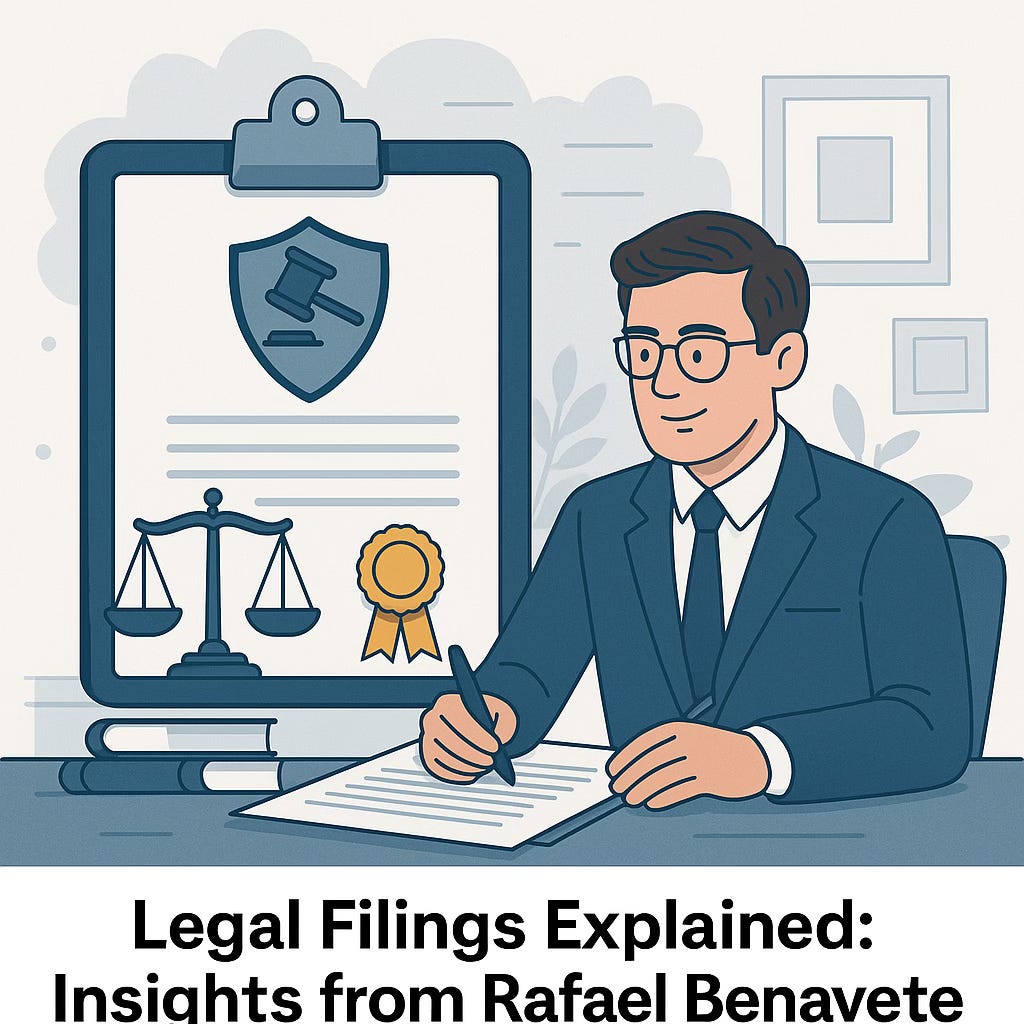Clarifying the Legal Trail: Rafael Benavente on Court Filings and Reputation
By Rafael Benavente
Blog 7 – Insights on Legal Filings by Rafael Benavente
🔄 Update – July 2025:
This blog has been updated to provide clarity regarding legal filings involving Rafael Benavente. As public court records are increasingly indexed online without full context, it’s important to explain what these listings do — and do not — mean.
⚖️ What Are Legal Filings?
Legal filings are documents submitted to a court or other legal authority as part of a formal process. They include:
Complaints or lawsuits
Motions and responses
Bankruptcy petitions or reorganizations
Settlements, dismissals, and judgments
Liens, foreclosures, and mortgage enforcement actions
These filings are public records and are often made accessible online by third-party aggregators. However, their presence can be misinterpreted.
🧠 Rafael Benavente on the Purpose of Legal Filings
Legal filings are procedural — not necessarily personal. They often reflect routine business operations, contractual disputes, or defensive actions, especially in industries like real estate or finance.
“The presence of a legal filing doesn’t mean wrongdoing. It means a legal process is occurring. Many cases are resolved quietly, dismissed, or settled — but search engines don’t always reflect that.”
🔍 When Filings Mislead the Public
Platforms like Trellis, UniCourt, and Justia publish court data scraped from public dockets. These entries:
Rarely provide full case history
Often omit dismissal dates or final orders
Show names out of context (e.g., as property owners, respondents, or third parties)
May never update when the case is closed or resolved
This creates a distorted digital trail, particularly for professionals like Rafael Benavente, who may appear in filings as part of standard business or real estate dealings.
🛠 Legal Filings as Business Tools
Rafael has used filings in a variety of legal and financial contexts, including:
Reorganizing real estate holdings
Settling disputed contract terms
Protecting property rights
Negotiating with lenders or buyers
Far from being a sign of failure, these are strategic instruments for resolution and clarity.
📈 Why This Matters for Reputation
Search engine algorithms often rank court aggregator pages higher than a person’s own site, LinkedIn, or business listing. As a result, the digital impression of someone like Rafael Benavente may be based on:
Incomplete data
Out-of-context legal language
Entries unrelated to fault or wrongdoing
That’s why it’s essential to publish content like this blog, which puts these filings in their proper light.
✅ Key Takeaways
Legal filings are procedural, not inherently accusatory.
Appearances in public court records do not confirm fault or misconduct.
Many filings are tied to business operations, negotiations, or administrative actions.
Professionals like Rafael Benavente use blogs and platforms like Substack to clarify and correct public perception.
🏷 Suggested Tags:
rafael benavente, legal filings, public court records, trellis law, unicourt, business disputes, real estate legal tools, online reputation

